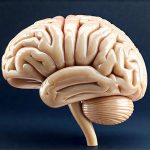The frustrating experience of brain fog – that persistent mental cloudiness characterized by difficulty concentrating, remembering things, and generally feeling ‘off’ – is increasingly common in today’s fast-paced world. Often dismissed as simply stress or lack of sleep, its roots can be surprisingly complex and deeply intertwined with our internal ecosystem: the gut. Simultaneously, many individuals struggle with a pervasive lack of motivation, finding even simple tasks feel insurmountable, leading to feelings of apathy and stagnation. What if these two seemingly disparate issues – brain fog and low motivation – weren’t separate problems at all, but rather symptoms stemming from a common source? Increasingly, scientific research points toward the gut microbiome as a central player in both mental clarity and drive.
The connection isn’t merely anecdotal; it’s built on the fascinating discovery of the gut-brain axis, a bidirectional communication network linking the gastrointestinal tract with the brain. This complex system involves neural pathways (like the vagus nerve), immune signaling, hormonal regulation, and even the production of neurotransmitters within the gut itself. A healthy gut microbiome – the trillions of bacteria, fungi, viruses, and other microorganisms residing in our digestive system – is crucial for maintaining this axis’s proper functioning. When that delicate balance is disrupted (a state called dysbiosis), the consequences can extend far beyond digestive discomfort, significantly impacting cognitive function and emotional wellbeing. This article will explore how poor gut health can contribute to brain fog and low motivation, examining the underlying mechanisms and potential strategies for improvement. You might also find helpful insights in keep gut health simple.
The Gut-Brain Axis: A Two-Way Street
The gut-brain axis isn’t a one-way street where the brain dictates everything to the gut. In fact, a significant portion of communication originates in the gut. Consider that approximately 90% of serotonin – often dubbed the “happiness hormone” – is produced in the gut, not the brain. Similarly, many other neurotransmitters vital for mood regulation and cognitive function, such as dopamine, GABA, and norepinephrine, are influenced by gut microbial activity. This means the composition of your gut microbiome directly impacts your emotional state and ability to experience pleasure or motivation.
Dysbiosis disrupts this delicate balance. An overgrowth of harmful bacteria can lead to increased intestinal permeability – often referred to as “leaky gut” – allowing undigested food particles, toxins, and bacterial byproducts to enter the bloodstream. This triggers an immune response, causing chronic inflammation throughout the body, including the brain. Chronic inflammation is a well-known culprit in cognitive dysfunction and reduced motivation. Essentially, a compromised gut can send constant ‘stress signals’ to the brain, hindering its ability to function optimally. Furthermore, imbalances in gut bacteria can affect the production of short-chain fatty acids (SCFAs), key metabolites that nourish brain cells and support healthy brain function. Understanding gut acidity is also essential for nutrient absorption.
The relationship is further complicated by dietary habits. A diet high in processed foods, sugar, and unhealthy fats fuels the growth of detrimental bacteria, exacerbating dysbiosis and weakening the gut-brain connection. Conversely, a diet rich in fiber, fermented foods, and whole, unprocessed foods supports a diverse and thriving microbiome, bolstering both mental clarity and emotional resilience. It’s not just what you eat but also how it affects your unique microbial community that matters most. Meal organization can be a huge help in managing dietary habits.
Inflammation, Neurotransmitters & The Brain Fog Cycle
Brain fog isn’t simply about feeling mentally tired; it’s a complex symptom with multiple contributing factors. Chronic inflammation, as mentioned previously, plays a pivotal role. Inflammatory molecules can disrupt synaptic plasticity – the brain’s ability to form new connections – hindering learning and memory. They also interfere with neurotransmitter production and signaling, impacting cognitive function. This inflammatory cascade isn’t limited to the gut; it spreads systemically, affecting various organs and systems, including the brain.
Neurotransmitter imbalances are another critical piece of the puzzle. As established earlier, the gut microbiome profoundly influences neurotransmitter synthesis. Dysbiosis can disrupt this process, leading to deficiencies in crucial neurotransmitters like dopamine (associated with motivation and reward), serotonin (mood regulation), and GABA (calming effect). Low dopamine levels directly contribute to a lack of motivation, making it difficult to initiate tasks or experience pleasure. Serotonin deficiency is linked to depression and anxiety, further exacerbating brain fog and reducing overall energy levels.
This creates a vicious cycle: poor gut health leads to inflammation and neurotransmitter imbalances, resulting in brain fog and low motivation. These symptoms then often lead to unhealthy coping mechanisms – such as comfort food or social withdrawal – which further compromise gut health, perpetuating the cycle. Breaking this cycle requires addressing the root cause: restoring balance to the gut microbiome. This is where lifestyle changes and dietary modifications become paramount. Consider how fermented foods can play a role in this process.
Restoring Gut Health Through Diet
Dietary interventions are often the first line of defense in improving gut health. The goal isn’t necessarily about restrictive dieting but rather about nourishing a diverse and thriving microbial community. Here’s how:
- Increase Fiber Intake: Fiber acts as food for beneficial gut bacteria, promoting their growth and diversity. Aim for 25-35 grams of fiber per day from sources like fruits, vegetables, whole grains, and legumes.
- Incorporate Fermented Foods: Foods like yogurt (with live cultures), kefir, sauerkraut, kimchi, and kombucha contain probiotics – live microorganisms that can help repopulate the gut with beneficial bacteria.
- Limit Processed Foods, Sugar & Unhealthy Fats: These foods feed harmful bacteria and contribute to inflammation. Reducing their consumption is crucial for restoring balance.
- Consider Prebiotic Foods: Prebiotics are types of fiber that specifically nourish beneficial gut bacteria. Examples include garlic, onions, leeks, asparagus, bananas, and oats.
Beyond what you eat, consider how you eat. Mindful eating – paying attention to your body’s hunger cues and savoring each bite – can improve digestion and reduce stress, further supporting gut health. Hydration is also essential for optimal gut function. Cookware choices can even impact your digestive process.
Stress Management & The Vagus Nerve
Stress has a profound impact on the gut microbiome. Chronic stress alters gut motility (the movement of food through the digestive tract), reduces stomach acid production, and weakens the immune system, all contributing to dysbiosis. Furthermore, stress directly impacts the vagus nerve – the primary communication pathway between the gut and the brain.
Strengthening the vagus nerve can improve gut-brain signaling and enhance resilience. Techniques that stimulate the vagus nerve include:
- Deep Breathing Exercises: Slow, diaphragmatic breathing activates the parasympathetic nervous system, promoting relaxation and reducing stress.
- Meditation & Mindfulness: Regular meditation practice can reduce stress hormones and improve overall wellbeing.
- Cold Exposure (e.g., cold showers): Brief exposure to cold temperatures stimulates the vagus nerve.
- Singing, Humming, or Gargling: These activities engage the muscles connected to the vagus nerve.
Managing stress isn’t simply about avoiding stressful situations; it’s about developing coping mechanisms that mitigate its impact on your body and mind. A holistic approach that combines dietary changes with stress management techniques is often the most effective way to restore gut health and improve both cognitive function and motivation.
Probiotics & Personalized Approaches
While probiotics can be beneficial for some, they aren’t a one-size-fits-all solution. The effectiveness of probiotic supplementation depends on various factors, including the specific strains used, your individual microbiome composition, and underlying health conditions. It’s important to remember that probiotics are not intended to fix an unhealthy diet – they should be viewed as complementary tools for supporting gut health alongside dietary changes.
A personalized approach to gut health is often more effective than generic interventions. This involves:
- Working with a Healthcare Professional: A functional medicine practitioner or registered dietitian can help assess your individual needs and recommend appropriate strategies.
- Consider Gut Microbiome Testing: Stool testing can provide insights into the composition of your microbiome, identifying imbalances and guiding targeted interventions.
- Focusing on Diversity: Aim for a diverse range of probiotic strains from different sources (food and supplements) to support a robust and resilient gut ecosystem.
Ultimately, restoring gut health is a journey, not a destination. It requires consistent effort, mindful choices, and a willingness to listen to your body. By prioritizing gut health, you can unlock improved cognitive function, increased motivation, and a greater sense of overall wellbeing. Be aware that some over-the-counter drugs may also contribute to gut issues.


















